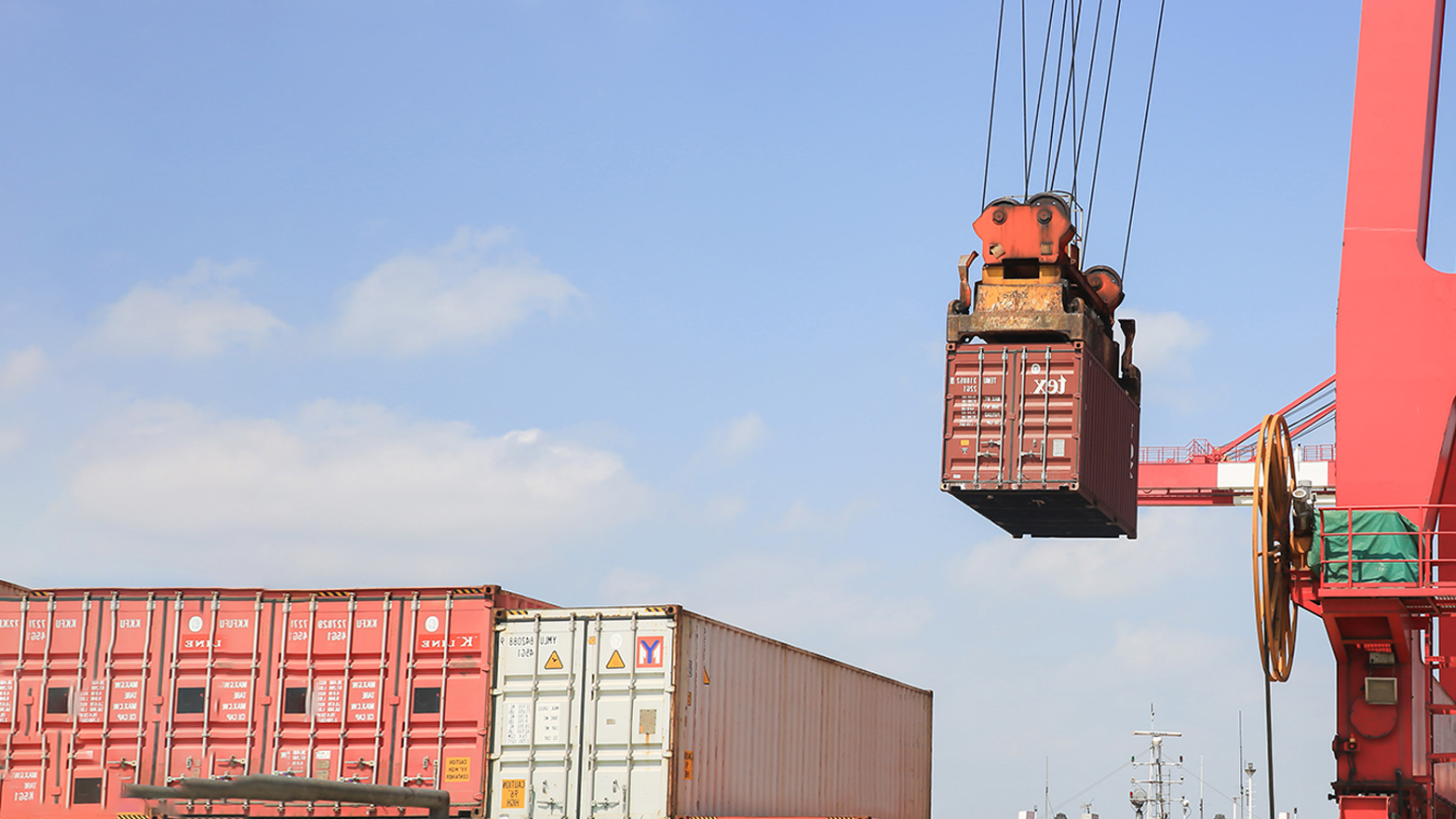Trade deficit widened in February
The U.S. needs global growth to pick up to boost exports.

The trade deficit widened by 2.7% in February to $70.5 billion from $68.7 billion following an upward revision in January. The February data came in worse than forecasted due to stronger-than-expected imports. Year-over-year, the deficit fell 20.3% due to outsized export gains and a services surplus.
The U.S. trade deficit increased as both imports and exports fell in February by $5.0 billion and $6.9 billion, respectively. That represents a 2.7% decline in exports compared to a 1.5% import drop. Imports were buoyed by a strong U.S. dollar at the time of February orders. Decreased demand for the dollar will continue to cause a loss in value for the currency.
Export declines were broad-based across nearly every category, driven in large part by industrial supplies and materials, which fell in major subcategories. After a weak January, natural gas fell an additional 34%, representing three-fifths of the industrial supplies and materials decline. Transportation goods, namely passenger cars and civilian aircraft, led automotive vehicles, parts, and engines, as well as capital goods, lower. Consumer goods would have posted a gain had it not been for a sharp drop in the previously strong pharmaceutical preparations subcategory.
Like exports, imports fell across the board. Nearly all shrinkage can be attributed to automotive vehicles, parts and engines, and consumer goods. The former being driven down 8% by trucks and buses, as well as passenger cars. Consumer goods dropped 5% with cell phones reversing course after a strong December and January. Pharmaceutical preparations and toys, games and cotton apparel posted large losses.
In services, the story was travel and transportation. Export travel and import transportation accounted for most of the gains in each area. The increase in export services was more than double that of import services leading to the second strongest services balance since mid-2021.
Globally, the United States’ surplus with the United Kingdom shrank 81% to $0.5 billion while the deficit with China increased 15% to $25.2 billion. For both the United Kingdom and China, exports fell while imports increased. These export orders were placed months in advance of China’s reopening, so they should be unrelated to February’s observed export weakness. Chinese consumers are showing signs of strength as retail sales bounced after a weak 2022. China’s demand for consumer services, by way of tourism and travel, is picking up and should continue to grow in the latter half of 2023.
Most key U.S. trading partners are now expected to see greater expansion than previously thought, which bodes well for U.S. exports in the coming year. The Conference Board’s Global Leading Economic Indicators Index was pulled lower by anticipated weakness in the U.S. and China but saw increases in half of the twelve countries measured. Year-over-year, the index remained negative for both emerging and mature economies.
Bottom Line:
The trade deficit widened in February due to imports outperforming exports. However, as the year continues, the deficit is expected to narrow as global demand returns and the dollar weakens. Stateside, a recession spurred by inflation and tight lending conditions should temper U.S. consumer spending and business investment.
A recession spurred by inflation and tight lending conditions should temper U.S. consumer spending and business investment.
Explore more
Meet our team

Subscribe to insights from KPMG Economics
KPMG Economics distributes a wide selection of insight and analysis to help businesses make informed decisions.
